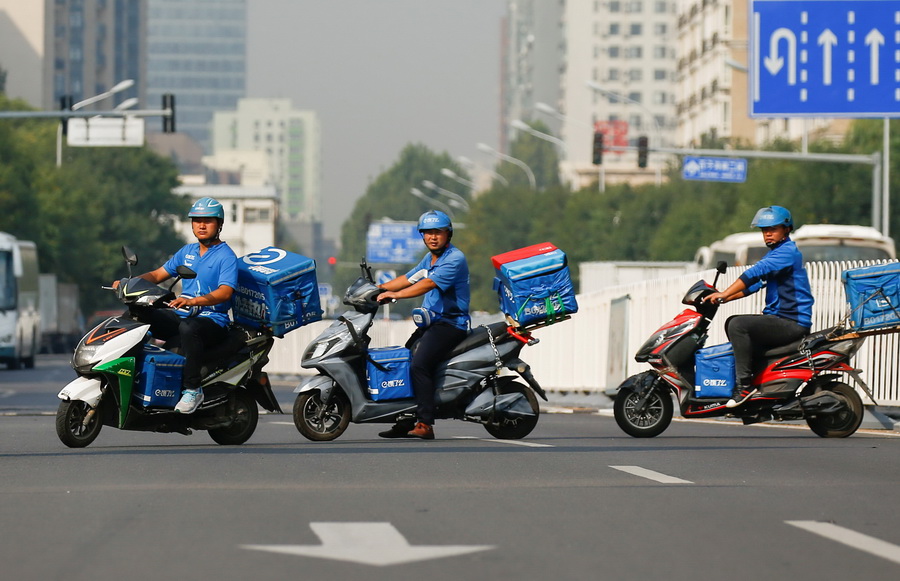Alibaba hungry for top spot in food delivery market


The country's food delivery market is edging closer to duopoly amid a rumored deal that would pit the nation's top two internet firms in direct competition.
Alibaba Group Holding Ltd is likely to gain the upper hand in the lucrative online-to-offline catering business, after it was reported by Bloomberg on Monday to be buying out Ele.me, the largest food delivery provider by market share.
The tech giant had held 23 percent in Ele.me by May 2017. The startup is now estimated to be valued at around $9.5 billion. But it remained unclear how much Alibaba would pay to the other shareholders in Ele.me, including search engine Baidu Inc.
Alibaba, Ele.me and Baidu all declined to comment.
The potential acquisition would intensify competition between Ele.me and Meituan Dianping, backed by Tencent Holdings Ltd. The duo had a combined 94 percent of the country's 67.7 billion yuan ($10.7 billion) food delivery sector by the end of 2017, according to consultancy Analysys.
"This (deal) would first and foremost spread the usage of Alipay," said Li Chengdong, a seasoned investor in the Chinese tech domain who was a strategist at e-commerce firm JD.
"In response to the investment, Tencent is likely to pour more resources into Meituan Dianping, spelling a boon to the latter," he added.
Ele.me runs an army of couriers on a conspicuous blue fleet of motorbikes shuttling across the country.
The rumored deal would enhance Alibaba's capabilities in "last-mile" delivery, a logistics cornerstone to implement the so-called New Retail strategy, which was pioneered by founder Jack Ma to better integrate online and offline commercial resources.
"Because Alibaba doesn't own delivery assets or inventory, the inclusion of Ele.me would strengthen and complement its logistics capabilities," said Chen Liteng, assistant analyst at China E-commerce Research Center.
The delivery tasks of Hema Supermarket, Alibab's flagship O2O supermarket that claims a 30-minute delivery time within a radius of three kilometers, is also likely to be handled by Ele.me's fleet in the future, he noted.
Steven Zhu, an analyst with market research firm Pacific Epoch, said that while the deal could create a drag on margins, there are a lot of synergies Alibaba can leverage, especially with its indigenous dining review service Koubei.
Li, who predicted "deepened integration" between Ele.me and Koubei, said the model would resemble the composition of Meituan and Dianping, which was the result of a merger of a food delivery major and a popular review site.



































